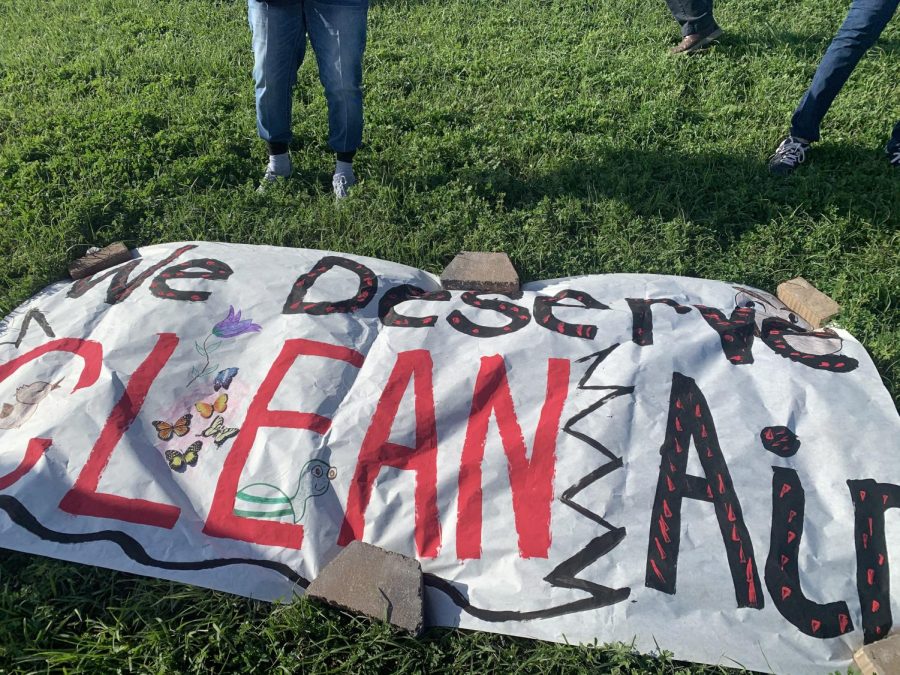Activists fight back against environmental racism
Courtesy of The Descendants Project
Sign by Descendants Project
November 13, 2022
The Greenfield Louisiana Project has begun to construct a grain elevator in Wallace, Louisiana that Jo Banner, co-director of the Descendants Project, said is an act of environmental racism.
The Descendants Project is an organization founded by Jo Banner and her sister, Joy Banner. The organization began with the intent of preserving slave descendants’ history in their city. However, soon after they began their work, they heard about the grain terminal where the elevator would be built and began advocating against the construction.
“It would destroy our community. There’s no way we could live next to it. There is no way we could live through the construction of it,” Jo Banner said.
A grain elevator is a large storage facility for grains to harvest and prepare for shipment. These elevators are large, most ranging from seventy to one hundred feet tall. They hold a lot of dust and metal, which is a cause for concern of residents living near one.
Jo Banner said she’s concerned for the effects, as dust and metal will be in the air and have the potential to harm residents.
“This is the purest form of environmental racism that you can find and it’s happening right here in Wallace and it needs to be addressed,” Jo Banner said.
The effects of the elevator’s construction is one of the major concerns for the parish, she said.
The zone in which the elevator is being built is also under question. Although the area is listed as heavy industry land, the Descendants Project has found evidence that this isn’t actually true.
“Maps of the parish, zoning lands, and other documents are showing that it’s actually residential land, but our parish is still saying that it’s heavy industry,” she said.
This same land that is listed as heavy industry was extorted by former parish president Lester Millet, Jr. He coerced the planning commission into illegally zoning the land as heavy industry, when it was previously listed as residential, according to information shared on the Descendants Project’s website. Millet was caught by the FBI and spent five years in prison, although the area remained listed as heavy industry.
“Even if it was heavy industry, our community falls well within the 2000 foot distance requirement around the property, so either way, the export facility should not be there,” she said.
This has helped with the organization’s files on a civil lawsuit, with support from the parish judge, Haston Lewis Jr.
Loyola professor and director of environmental communications, Robert Thomas, said that the people of Wallace are at the heart of this issue.
“They are very concerned about how it’s going to impact their lives, property values, health, and their culture. And that’s the essence of what we are gonna watch play out,” Thomas said.
Thomas said grain elevators can cause catastrophic damage in some extreme cases.
“If you look back over the history of grain elevators, you’ll find that every now and again, there are these terrible explosions,” he said. “When that happens, it’s a tragedy. It can kill people and destroy property.”
Thomas said he understands the fear these communities are having over the elevator.
“It is a terrible thing for communities to have to deal with because of the fears and anxieties. And again, not trusting the businesses,” Thomas said.
Jo Banner said she is disgusted that this type of discrimination is still happening in the United States.
“It’s revolting that Black communities are put under this type of terror and threat. And that after all these years we have a government that would support action that would keep us out of our own government,” Banner said.








